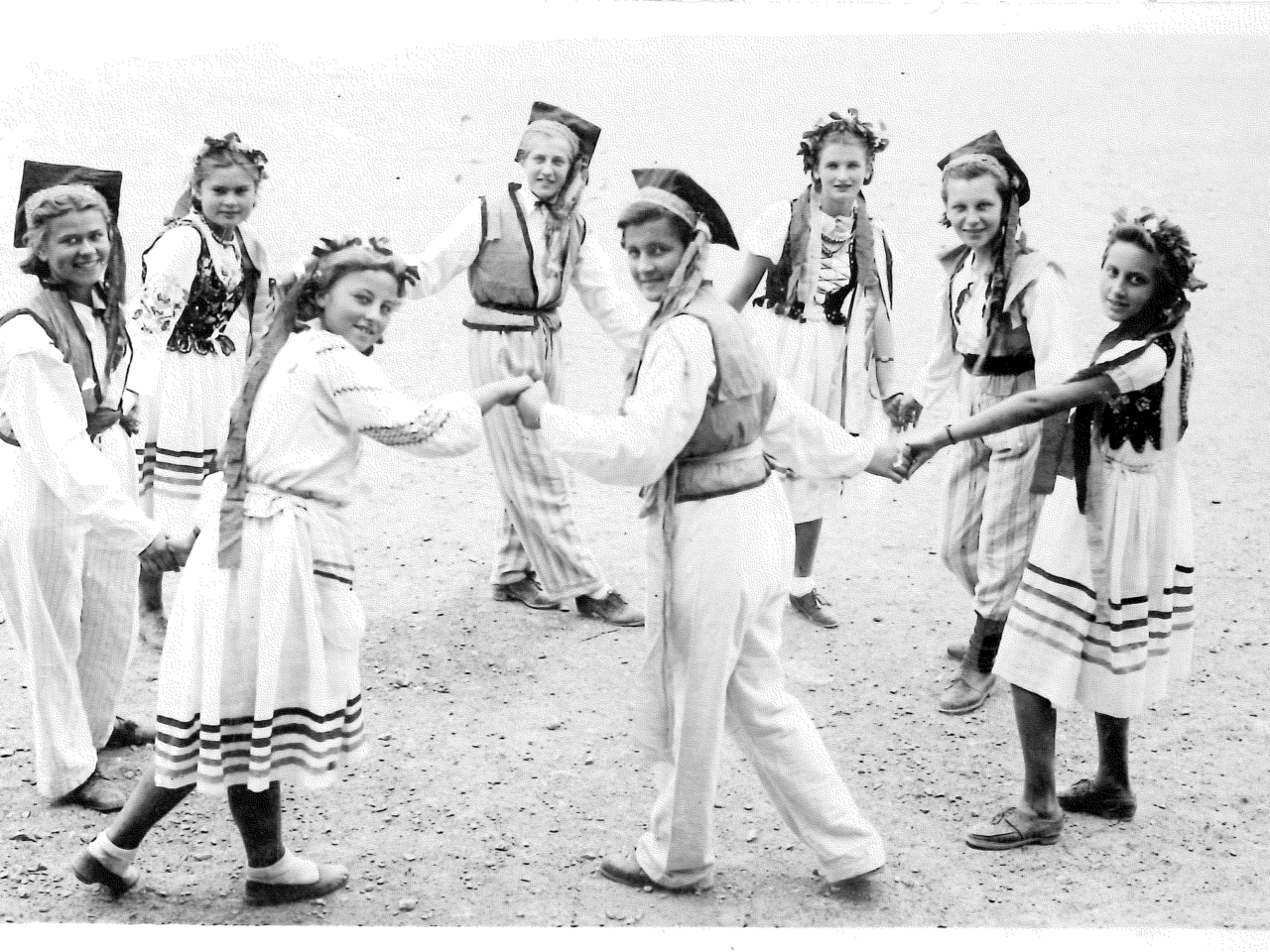ÉMIGRÉ STORIES: Alexandra Habasinska, Marketing Intern

A subject very close to the hearts of countless families across Britain, ÉMIGRÉ has played a huge role in so many people’s personal and cultural histories. In the weeks coming up to the start of our next concert series, ÉMIGRÉ, we’ve been collecting stories on the theme. While our concerts explore the journeys taken by composers and artists across the world, this blog series, ÉMIGRÉ STORIES, focuses on the journeys of the individuals that collectively make us: City of London Sinfonia. A collation of stories from a range of individuals connected to the orchestra, from players and members of the executive team to past collaborators, the series will track the fascinating, and often quite poignant, stories of those that, together, make up CLS’s own émigré history.
Our first émigré is our wonderful Marketing Intern, Alexandra Habasinska, whose family moved from Eastern Poland to the UK almost 70 years ago.
A little after the end of WWII, my maternal grandparents and great-grandparents settled in England, the end of a journey that, years before, saw them torn from their homes in eastern Poland. This story, whole families packed into cattle trains and transported to work camps in the depths of the Soviet Union, is familiar to many Polish families like mine. My grandfather’s family was taken north, to Arkhangelsk, to work on the railway; my grandmother’s family south, to Pavlodar in Kazakhstan, where they worked in the fields and herded goats.
When the camps were liberated by allied soldiers, the families were moved to refugee camps in Iran, and later Africa (my grandmother finished her schooling in a camp in Zimbabwe).

This photograph was taken in a refugee camp in Tehran – my grandmother is the second in from the left. They arrived in the camp with very little more than the clothes on their backs, so the costumes they’re wearing were either brought with the rest of the relief packages, or hand-made. After years of captivity, back-breaking physical labour, and malnutrition they celebrated their freedom by singing and dancing. Even in the darkest times it is music that held people together; there are many stories of deportees, as they crossed the border out of Poland, singing the patriotic hymn ‘Boże, Coś Polskę’, a plea for a free homeland which was written in 1918, just after Poland regained its independence after 123 years.

By the summer of 1948, both my grandfather’s and grandmother’s families had arrived in England, and by chance settled in the same camp in Oxfordshire. My grandparents met and married, and began their new life in England, where they filled their home with the music, food, language, and traditions of their own early childhoods.

I remember long summers with my grandmother, sitting under her prized apple tree eating pancakes and singing folk songs. I remember my grandfather crooning lullabies into my baby brother’s ear as he paced him up and down the corridor. Christmas is not Christmas without the smell of beetroot soup and frying potatoes, and a scratched recording of Polish carols by the folk group Mazowsze; and I don’t think there will ever be a time when the sound of an accordion won’t put a smile on my face!
Here is a short playlist with a few songs for the Polish émigré:
[spotify id=”spotify:user:cityoflondonsinfonia:playlist:3mz0zecWQpaYj8eK486hiD” width=”300″ height=”380″ /]
The 1930s cabaret scene in Poland was very vibrant, and the country was in thrall to the tango. Mieczysław Fogg was one of the most popular singers of the day, and recorded an impressive collection of tangos. This song, ‘To Ostatnia Niedziela’ (The Last Sunday), tells the story of a young couple on their final day together before they part. It has since been translated into Russian, and is now better known as ‘Burnt by the Sun’.
Chopin, the original Polish émigré, is a must on any list of Polish music. Here is his Fantasy on Polish Airs; the second movement is based on a folk song still widely performed.
Michał Kleofas Ogiński seems barely known outside Poland, but he wrote one of our most beloved pieces – the polonaise ‘Pożegnanie Ojczyzny’ (Farewell to the Homeland). It’s arranged here for accordion.
Finally, is the patriotic hymn ‘Boże, Coś Polskę’, the song that was sung by deportees leaving their homeland forever.
As for Mazowsze, an almost inescapable part of any Polish youth, they really need to be seen to be believed:
[youtube https://www.youtube.com/watch?v=OeQ6jYzt6cM]
Join us for our exciting Émigré series which explores the journeys composers have made through history. On Wednesday 25 February we perform a range of tango music from Piazzolla, Golijov and Bartok with live dancers and a FREE tango taster from 6.45pm.
CLOSER: To and From Buenos Aires
Wednesday 25 February 2015, 7:30pm
FREE tango taster from 6:45pm
Village Underground, Shoreditch
Tickets £15 or £5 for students (pre-register at www.cls.co.uk/cls-fiver) available from Spitalfields Music Box Office or via phone on 020 7377 1362.


